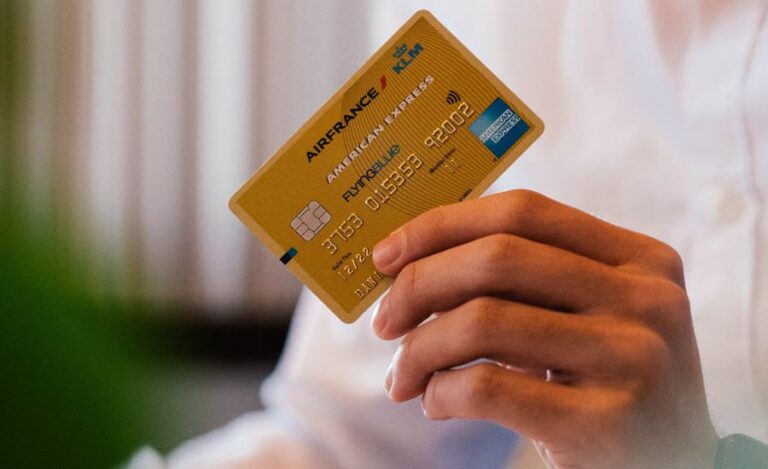How To Payoff Mortgage Before the 40s?
For the record, a mortgage is the average American’s most significant expense. On average, about 30% of American retirees still owe money on their homes. This means retirees are on the hook for thousands of dollars per year in mortgage payments even as their income winds down.
For us, in general, the very thought of paying off a mortgage till the last breath can be pretty daunting. So, being mortgage-free is a freedom that we all wish to taste.
It might be just for the psychological freedom of eliminating the household’s largest budget line item or to reduce expenses way before retirement. Whatever the reason may be, it is sure a great burden that we all want to waive off from our chests!
Now, the question of the hour is:
Can I pay off My mortgage before the 40s?
The answer to this is a tad bit tricky! There’s a list of things that need to be in place for you to make it work. To pay off the mortgage early, you will need a larger amount of disposable income than an average working professional. Else, you should have purchased a more modest home than average or maybe both.
First things first, paying off your mortgage faster involves getting a mortgage with a shorter amortization period. Having said that, it comes with higher regular payments. for starters, mortgage amortization is simply the way of paying off a mortgage loan.
To expand it further, Amortization refers to how payment is applied to principal and interest. The amortization period is the total timeline of your mortgage. Generally, most amortization periods are around 25 years or so.
Yes, you can certainly opt for a lower number of years, as long as you can afford the higher monthly payoffs.
Can I pay off the mortgage quickly?
It’s a no-brainer that paying your mortgage as early as possible is an excellent idea. Then again there is a reasonable argument for dealing with high monthly payoffs. Generally, it is said that mortgages are the cheapest kind of finance one can get. But, is it?
In case we find an investment that results in a higher long-term interest rate than what the mortgage will cost us, it is better of taking that investment instead of accelerating the mortgage.
Let me explain this with an easy example. Say, your mortgage rate for the next 10 years will be 3%. Now, assume that you have an Exchange Traded Fund (ETF) that will grow an average of 6% per year over the next ten years. In this scenario, every dollar that accelerates your mortgage payment will save you 3%.
However, every dollar that you invest in ETF instead would be earning 6%. In a nutshell, investing in your ETF instead of accelerating your mortgage payments will make you financially better off.
Do keep in mind that this is just a simplified explanation. There is more risk involved in the real world. You know that the interest rate will fluctuate over time in both the mortgage and stock markets.
By this, you can say that paying off the mortgage as fast as possible may not always be the best bet.
What are the perks of paying off your mortgage early?
Save money on interest
Reduce the time you spend making mortgage payments. This way, you can simply cut down the interest rate period you pay over the life of your loan. Depending on the loan amount, interest rate, and original term, paying your mortgage off early could result in significant savings.
Free up money for later in life
Generally, a typical mortgage lasts 15 to 30 years. That’s a pretty long time to be saddled with loan payments. Paying off your mortgage early will free up cash to spend on more exciting stuff, isn’t it?
Increase home equity
Paying off a loan will increase the amount of equity for your home. This will help you to tap into a home equity loan, home equity line of credit (HELOC) or cash-out refinance.
What are the downsides of paying off the mortgage early?
Less money for the higher-interest debt
If you own a credit card or bear a student loan debt, funnelling your extra income toward paying off the mortgage early can cost you in the long run. This is because the other debts are likely to have higher interest rates.
Less money for savings
Putting all of the money toward your mortgage can also cut into what we can set aside in savings. If you are going to focus on paying off your home loan early, it’s a good idea to make sure you have an adequate emergency fund first.
I recommend you start saving money as an emergency fund to cover at least three to six months’ expenses. This way, you can manage any unexpected costs without going into debt.
Could miss out on higher returns from investing
If you get the opportunity to invest for returns that are significantly higher than your mortgage rate, go for it. It is far better than missing out on compounding earnings to get rid of the mortgage quicker.
Say, if your mortgage rate is 3.5%. And your portfolio earns an average of 6% per year. In that case, I would rather lose money by using those extra funds to pay off the loan early.
How to pay off your mortgage Fast?
If you have made up your mind to pay off your mortgage quickly, keep scrolling. As you can see that this isn’t easy in practice, but the actual principles are quite simple.
The following strategies will help you pay off a mortgage sooner, although combining them is the best approach.
Increasing the amount of your regular payment
The larger our regular mortgage payments, the lesser time it will take for you to pay off the mortgage. Easily said, but doing it is challenging! To increase the size of our payments, you would need to free up funds from other sources or start making extra money. You can also find work from home job to increase your monthly income.
Here are a few ways we could do it:
- Divert money from retirement savings or other investments to mortgage payments.
- Increase the income to increase the payments, simple!
- Decrease the cost of our lifestyle, and divert those savings to the mortgage payments.
Keep in mind that diverting money from other savings goals will necessarily mean some sacrifices. It’s also important to always keep some savings in cash on hand for emergencies as financial security is important.
Refinancing to a Shorter Term Length
It’s common for mortgage borrowers to opt for a longer repayment term to keep monthly payments low—typically 30 years. However, as time goes on, your income may increase to free up more cash flow.
If that’s the case, you may be able to refinance the loan to a shorter term. Since the repayment period gets crunched into a shorter period, the monthly payments will likely increase.
However, this is an effective way to pay off your mortgage much earlier and save a ton of money on interest. If you also qualify for a lower interest rate, that’s a cherry on top.
Take a look at this comparison of a $250,000 loan with a 30-year plan plus a fixed-rate term versus a 15-year with a fixed-rate term:
Comparison of 30-Year Plan Vs. 15-Year plan At Fixed rate
| Description | 30 Year Fixed Rate | 15 Year Fixed Rate |
|---|---|---|
| Interest Rate | 3% | 2.25% |
| Monthly Payment | $1,054.01 | $1,637.71 |
| Total interest paid | $129,443.63 | $44,788.15 |
As you can see, it’s possible to save $84,655 in interest if you pay off in half the time.
Buying a smaller home
Needless to say, It will be easier to pay off early if your mortgage is smaller. Of course, there’ll be some compromises needed to find a cheaper home to live in, like:
- Buying a condo instead of a house.
- Living further from the city’s Downtown core.
- Finding a smaller home to live in – For instance, a condo with fewer bedrooms, or a house with less land.
While there can be some pain coming from scaling down your expectations, remember that a less expensive home can directly lead to you paying off your mortgage sooner. Financial independence at a younger age is a valuable asset, so it may very well be worth the trade-off.
Reducing the expenses of your lifestyle
The more disposable income you have, the more money you can afford to put toward your mortgage. If you can’t increase your overall income easily, then the best bet is to reduce the amount you spend. There are entire websites, books, and careers dedicated to this. That said, there are some big changes you can make today to reduce the cost of your lifestyle.
For instance, say I took out a 30-year fixed-rate mortgage of $250,000 at a 5% annual percentage rate (APR) and have 25 years left on the loan. That would mean I owe $1,342.05 per month. Now imagine that I tack on just $20 extra to each payment. I’d shorten the repayment period by eight months and save $5,722 in interest.
Now, for an extra $20 per month, I’d simply need to cut out one fancy coffee a week or a couple of takeout lunches. Putting even more money toward extra payments will result in even more savings.
Final Words
Paying off the mortgage by 40, or just paying it off earlier than normal, is certainly possible. However, it will generally require some sacrifices, whether that’s buying a more modest home, working longer hours, reducing the overall cost of your lifestyle, or a combination of these. In the end, as Frederick Douglas said, “If there is no struggle, there is no progress”.
Until next time, peace out!



